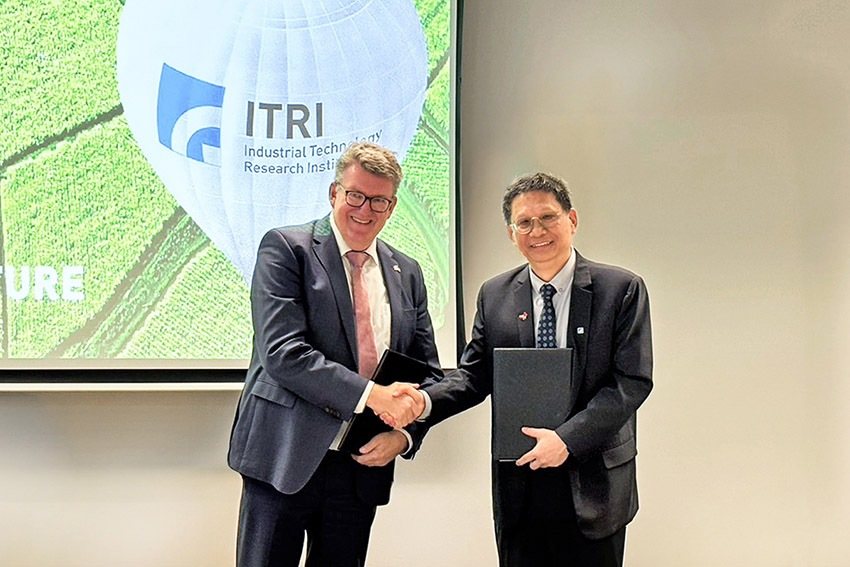ITRI Partners with Germany's Forschungszentrum Jülich to Drive Hydrogen Applications and Taiwan’s Net-Zero Transition
2025/09/30 | By CENSAs the global energy landscape rapidly evolves, hydrogen has become a focal point of international investment. The EU, Japan, and the US are all investing heavily in hydrogen economies, and Taiwan is also accelerating its efforts to integrate hydrogen into industries and daily life as part of its path toward net-zero transition.
To advance this goal, the Industrial Technology Research Institute (ITRI) has signed a cross-border collaboration agreement with Forschungszentrum Jülich (FZJ) of Germany. Witnessed by senior officials from Taiwan's National Science and Technology Council and the Ministry of Economic Affairs, the two parties signed a Memorandum of Understanding (MoU) on Low-Carbon Hydrogen/Ammonia Energy Production and Microgrid Applications.

The partnership will focus on the joint R&D of hydrogen (and ammonia) fuel cell power generation systems, integrated with the microgrid platform at Taiwan’s Shalun Green Energy Technology Demonstration Site. By combining Germany’s strengths in hydrogen materials and systems with ITRI’s expertise in demonstration applications and industrial integration, the collaboration aims to accelerate the transition of hydrogen technologies from the laboratory to real-world applications—while opening new international opportunities for Taiwan’s hydrogen industry.
Forschungszentrum Jülich, one of Europe’s leading research centers with over 7,000 researchers from 114 countries, has long specialized in hydrogen and fuel cell technologies. Backed by the German government, it is spearheading large-scale hydrogen demonstration and industrial validation projects, helping to accelerate the formation of Europe’s hydrogen economy.
For Taiwan, ITRI has already established the country's first hydrogen application demonstration and verification platform in 2024. This includes work on green hydrogen storage, distributed power systems, and hydrogen carrier combustion technologies, with nearly 20 domestic and international partners involved. This year, ITRI is advancing ammonia-to-hydrogen conversion and solid oxide fuel cell (SOFC) R&D, with plans to build a 100Nm³/h green ammonia-to-hydrogen system and a 200kW SOFC hydrogen/ammonia power generation system. These projects will validate the carbon-reduction benefits of hydrogen in real-world settings and help upgrade Taiwan's hydrogen-ammonia technology and supply chain.
Hydrogen is a critical bridge for Taiwan's net-zero transition. This collaboration not only accelerates technology maturity but also supports industrial implementation, providing solutions that enterprises can adopt directly. It also strengthens Taiwan’s competitiveness in the global clean energy transition.
The initiative aligns with ITRI's “2035 Technology Strategy and Blueprint,” which focuses on sustainability, health, and intelligence. By linking international cooperation with local implementation, hydrogen energy will increasingly enter daily life—delivering cleaner environments, stable power, and new industrial opportunities as Taiwan moves toward a net-zero future.

